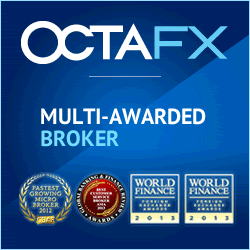Forex trading is a highly lucrative venture, but it comes with its own unique challenges, one of which is the issue of interest or Riba. This challenge poses a problem for Muslims who are looking to invest in Forex trading. Islamic accounts in Forex trading offer a solution to this issue by providing a way for Muslims to invest in Forex trading without violating their religious beliefs.
| Broker | Features | Regulated | Website |
|---|---|---|---|
|
| FSA, FSC, CBCS, FSCA, CySEC, FCA | |
|
| CySEC, FSA, ASIC, SCB | |
|
| CySEC, FCA, IFSA | |
|
| CySEC, FSC, FSCA, ASIC | |
|
| CYSEC, FSCA, FSC | |
|
| FSA, FMA | |
|
| FSA, CySEC | |
|
| FCA, CySEC, FSC | |
|
| IFSC | |
|
| CySEC, ASIC, FSC, DFSA, FCA | |
|
| FCA, CySEC | |
|
| FSA | |
|
| CySEC, FSC, FSCA | |
|
| FSC | |
|
| FinaCom | |
| CySEC, FCA , DFSA, FSCA , FSA , CMA | ||
| FCA, ASIC, DFSA | ||
|
| Not Regulated | |
|
| CFTC , IIROC, CySEC, FCA, FSA, MAS, CIMA, ASIC | |
|
| MFSA,ISA, LFSA, IFSC ,VFSC | |
|
| FCA , ASIC, FSA, FSCA | |
|
| FSC, CYSEC, ASIC | |
|
| ASIC, CIMA ,DFSA, FCA | |
|
| VFSC ,FSP , ASIC,FSCA | |
|
| FINMA, FCA, MFSA, SFC, DFSA | |
|
| FCA, CSSF and SCB | |
|
| CFTC, NFA, FCA, MAS, ASIC, IIROC, FFAJ | |
|
| SEC and FINRA | |
|
| US SEC & CFTC, ASIC, FCA, IIROC, SFC, NSE, BSE, FSA | |
|
| ASIC, CySEC, ESMA | |
|
| CySEC, KNF, FCA, IFSC | |
|
| FCA, CySEC, FSC, FSA | |
|
| ASIC, MAS, FCA | |
|
| FSC | |
|
| FCA, ASIC, FSC, CYSEC | |
|
| FMA | |
|
| FSA, FCA, CySEC, FSCA | |
|
| FCA, CySEC, FSCA, SCB | |
|
| CIF, CySEC, | |
|
| FSC, CySEC, | |
|
| CBI, ASIC, FSC, FCA, FSCA | |
|
| FSC | |
|
| CySEC, FSC | |
|
| CySEC, FCA, ASIC, FSAS | |
|
| FSA | |
|
| ASIC, FCA, CySEC, CIPC, JSC | |
|
| CySEC, FCA, ASIC, FSA |
What is an Islamic Account in Forex Trading?
An Islamic account in Forex trading is a type of account that is designed to adhere to the principles of Islamic law, also known as Shariah law. In accordance with these principles, Islamic accounts do not charge interest or Riba. Instead, they charge a fixed commission or spread, which is the difference between the buying and selling prices of a currency pair. This allows Muslim traders to engage in Forex trading without violating their religious beliefs.
How Does an Islamic Account in Forex Trading Work?
Islamic accounts in Forex trading work in a similar way to regular Forex trading accounts, but with some key differences. One of the main differences is the way that fees are charged. In a regular Forex trading account, fees are typically charged as interest on trades that are held overnight. In an Islamic account, however, fees are charged as a fixed commission or spread, which is agreed upon at the time of opening the account.
Another difference is that Islamic accounts do not allow traders to engage in speculative trading or take excessive risks. This is because Islamic law prohibits activities that are considered to be gambling or speculative in nature. Instead, Islamic accounts only allow traders to engage in transactions that are backed by real assets, such as commodities or stocks.
Is it permissible to trade Forex in Islam?
Yes, it is permissible to trade Forex in Islam as long as it is done in accordance with Shariah law. This means that interest or Riba must be avoided, and trades must be backed by real assets. You should also talk with your local Islamic scholar or Aalim on this business.
How are fees charged in Islamic accounts?
Fees are charged as a fixed commission or spread, which is agreed upon at the time of opening the account. This allows Muslim traders to engage in Forex trading without violating their religious beliefs.
Can I trade Forex using leverage with an Islamic account?
Yes, it is possible to trade Forex using leverage with an Islamic account. However, the leverage offered may be lower than that offered by regular accounts, as Islamic accounts do not allow traders to engage in speculative trading or take excessive risks.
What types of accounts are available for Islamic traders?
Islamic traders can choose from a variety of account types, including standard, mini, and micro accounts, depending on their individual needs and preferences.














































